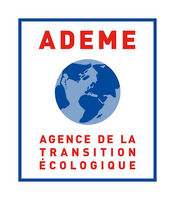Search eceee proceedings
Gender, expertise and control in Dutch residential smart grid pilots
Panel: 1. Dynamics of consumption: less is more?
This is a peer-reviewed paper.
Authors:
Sylvia Breukers, DuneWorks B.V, The Netherlands
Marten Boekelo, DuneWorks, The Netherlands
Benedetta Oberti, Italy
Abstract
Recent work has shown that technologies to enable residential demand-side flexibility are not value-neutral, that the ability to provide demand-side flexibility is not evenly distributed across societal groups, potentially deepening existing divisions and undermining societal support for the energy and climate transition. One such division relates to gender. Based on work for the IEA User TCP Task on Gender & Energy, this paper aims to contribute to recent discussions on gender and smart grid developments, through a brief literature review and an analysis of empirical materials collected in two Dutch smart grid pilots, where we conducted interviews and focus groups with residential participants.
The paper discusses the gendered differences in the build-up of interest and expertise in household smart grids, in connection to experiences of control, comfort, safety and trust.
Based on a brief literature review and empirical analysis, we show that although other factors such as age also affect the uptake of smart grid expertise, gendered roles in housekeeping stand out because it can result in a situation whereby female household members lose out in terms of control. Consequentially women become more dependent on others for the management of basic energy services in the home than they were before (the introduction of the smart grid solution) – which in cases results in their disengagement and withdrawal. With the advent of residential smart grids, more is asked from in terms of energy literacy, due to an increasing number and diversity in installations for energy generation and storage in and around the home. On top of that, a digital layer consisting of both hardware devices and software to monitor and manage the flows of information and energy within the home and the community is making demands in terms of their digital literacy. Combined, these two developments present a formidable challenge to most household end-users, yet more to women than to men.
While this paper is exploratory, we argue that the challenge arises out of the combined impact of limited energy and digital literacy. For subsequent empirical work, we suggest a further unpacking of the notions of literacy and expertise in relation to gender, in a co-creative approach with both residents and smart grid technology developers. And for policy, as the digitalisation of our energy systems advances, energy transition policies should anticipate unevenly distributed impacts of this digitalisation and attend to how the ability to participate intersects with gender, age and other socio-economic factors.
Downloads
Download this presentation as pdf: 1-282-22_Breukers_pres.pdf
Download this paper as pdf: 1-282-22_Breukers.pdf
Panels of
1. Dynamics of consumption: less is more?
2. Efficiency and beyond: innovative energy demand policies
3. Policy, finance and governance
4. Monitoring and evaluation for a wise, just and inclusive transition
5. Towards sustainable and resilient communities
6. Energy-efficient and low-carbon mobility for all
7. Policies and programmes for better buildings
8. Innovations in products, systems and building technologies



























